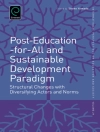From Central District Seattle to Harlem to Holly Springs, Black people have built a dynamic network of cities and towns where Black culture is maintained, created, and defended. But imagine—what if current maps of Black life are wrong?
Chocolate Cities offers a refreshing and persuasive rendering of the United States—a “Black map” that more accurately reflects the lived experiences and the future of Black life in America. Drawing on film, fiction, music, and oral history, Marcus Anthony Hunter and Zandria F. Robinson trace the Black American experience of race, place, and liberation, mapping it from Emancipation to now. As the United States moves toward a majority minority society,
Chocolate Cities provides a provocative, broad, and necessary assessment of how racial and ethnic minorities make and change America’s social, economic, and political landscape.
Tabela de Conteúdo
Preface
1. Everywhere below Canada
PART I THE MAP
2. Dust Tracks on the Chocolate Map
3. Multiplying the South
4. Super Lou’s Chitlin’ Circuit
PART II THE VILLAGE
5. The Blacker the Village, the Sweeter the Juice
6. The Two Ms. Johnsons
7. Making Negrotown
PART III THE SOUL
8. When and Where the Spirit Moves You
9. How Brenda’s Baby Got California Love
10. Bounce to the Chocolate City Future
PART IV THE POWER
11. The House That Jane Built
12. Mary, Dionne, and Alma
13. Leaving on a Jet Plane
14. Seeing like a Chocolate City
Acknowledgments
Appendix
Notes
Bibliography
Index
Sobre o autor
Marcus Anthony Hunter is Chair of the Department of African American Studies, Associate Professor of Sociology, and he holds the Scott Waugh Endowed Chair in the Division of the Social Sciences at the University of California, Los Angeles. He is the author of Black Citymakers: How the Philadelphia Negro Changed Urban America and the president of the Association of Black Sociologists. Zandria F. Robinson is Associate Professor in Rhodes College’s Department of Sociology and Anthropology. She is the author of This Ain’t Chicago: Race, Class, and Regional Identity in the Post-Soul South and coeditor of Repositioning Race: Prophetic Research in a Postracial Obama Age.












